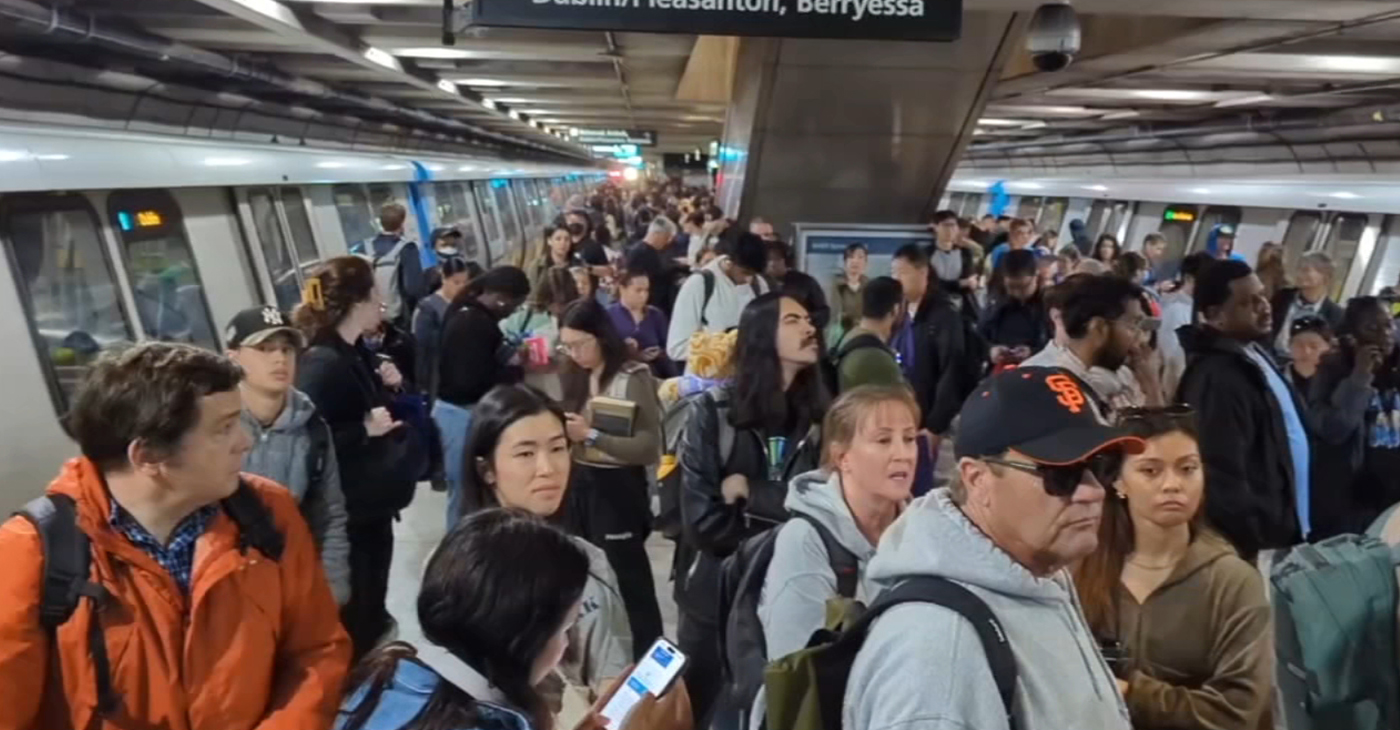Mayor London N. Breed today announced a plan to create a new Street Wellness Response Team to improve outcomes for people in need on San Francisco’s streets and advance the City’s efforts to implement alternatives to police responses to non-violent calls.
The Street Wellness Response Team will provide an appropriate medical and social service response for people who require immediate assistance but do not have emergent behavioral health care needs.
San Francisco’s Street Crisis Response Teams (SCRT) will continue operating to address the needs of people experiencing behavioral health crises.
“Building on the early success of the Street Crisis Response Team, we are continuing our work to make a significant change to improve how we effectively serve people in need on our streets,” said Breed. “Many calls to 911 or 311 about someone who appears to need help on our streets don’t require an armed police response, and often the services and care people need would be best provided by a paramedic or outreach worker instead of a police officer.
“As we work to recover from COVID-19, part of making our city stronger and healthier requires pushing forward on our efforts to help people experiencing homelessness and who are on our streets in need of assistance and connections to housing. The Street Wellness Response Team will work alongside the Street Crisis Response Teams. Together, these Street Response Teams will meet people where they are and provide the level of care that is needed.”
The Street Wellness Response Team will consist of community paramedics and EMTs from the San Francisco Fire Department (SFFD) and Homeless Outreach Team members from the Department of Homelessness and Supportive Housing (HSH).
They will be dispatched to focus on well-being checks and situations that require immediate attention, but do not meet the threshold of an acute behavioral health crisis. This includes situations such as someone with obvious wounds, people who are lying down or sleeping, or someone inappropriately clothed for the weather.
SFFD community paramedics, which also support the Street Crisis Response Team, will perform medical, behavioral, and social needs assessments, render immediate aid if needed, and along with the homeless outreach worker, will be able to offer meaningful connections to services and housing.
The new team will be deployed on 12-hour shifts in an SFFD vehicle and have the ability to provide transportation services to individuals who might need that as part of the engagement.
As with SCRT, the new Street Wellness Response Team will be able to respond directly to 911 and 311 calls for service. The team will analyze 911 and 311 calls for service to strategically assign teams to be in areas where there is high need and proactively respond to people in distress on the street who are not in an acute behavioral health crisis.
Integrating these teams with 911 and 311 dispatch will also help with tracking data and outcomes to ensure the efficacy of the program.
Existing outreach teams like the Homeless Outreach Team and Harm Reduction Outreach teams will continue to operate, complementing the Community Response Teams by providing ongoing, specialized outreach to people experiencing homelessness who need support to stabilize and move from streets to housing.
The Mayor’s proposed budget for Fiscal Years 2021-22 and 2022-23, which will be submitted by June 1, 2021, will include $9.6 million to fund five teams over two years. If this team is approved in the Budget when it is finalized at the end of July, they would begin the operational planning, developing protocols — including risk assessment and dispatch—and launch at least one team by January 2022 and build up to five teams total by April 2022.
“The San Francisco Fire Department’s Community Paramedic Division stands ready to build another team to deliver the much-needed services to people of the City and County of San Francisco,” said Chief Jeanine Nicholson of the San Francisco Fire Department. “Mayor Breed has recognized the positive impact that community paramedicine has had with the recently implemented Street Crisis Response Team and EMS6. The SFFD looks forward to being a part of the solution to improving people’s lives as well as overall street conditions.”
“The Street Wellness Response Team will provide dignified and compassionate care to people experiencing homelessness on our streets and in our neighborhoods,” said Shireen McSpadden, director of the San Francisco Department of Homelessness and Supportive Housing. “We appreciate this investment in making our communities safer and more humane for all residents of San Francisco.”
During the rollout of SCRT, the City has continued to focus on the next steps needed to provide better services and outcomes for people on the street and end the use of police as first responders when an armed response is not needed. Led by the Mayor’s office, City departments including SFFD, Department of Emergency Management, San Francisco Police Department, the Department of Public Health, HSH, San Francisco Municipal Transportation Agency, City Administrator’s office, and Public Works, have been identifying and analyzing further calls that could be diverted from the police and handled by different non-law enforcement entities in a manner that is safe, sustainable for the long-term, and delivers better service for those in need of assistance.
In 2019, there were approximately 18,000 calls for assistance regarding “well-being checks” that were fielded by both 911 and 311 in which the police were ultimately deployed to respond.
This is one of the highest-volume call categories currently being answered by police after the calls regarding “mentally disturbed adults” that have already been diverted to SCRT. To address these “well-being” requests and provide more proactive outreach, Breed is proposing these new teams to operate in concert with SCRT and the City’s continuum of services.
“There is a lot of stigma against people having a mental health crisis on the streets,” said Miguel Levya, a peer counselor for SCRT. “We find we can de-escalate most situations by treating them the way everyone wants to be treated – with kindness and respect. This offers the best approach for getting them the help they need and resolving any disturbances that have happened.”
Street Crisis Response Team Background
In June 2020, Mayor Breed announced a roadmap to fundamentally change the nature of policing in San Francisco and issued a set of policies to address structural inequities. She proposed four priorities to achieve this vision: ending the use of police in response to non-criminal activity; addressing police bias and strengthening accountability; demilitarizing the police, and promoting economic justice.
The Street Crisis Response Team launched in November 2020 to change the way San Francisco responds to non-violent, mental health crises on our streets. The SCRT pilot program offers a unique model for the nation with a behavioral health and harm reduction approach to people in distress. Each SCRT neighborhood team consists of a paramedic, a behavioral health clinician, and a peer health worker.
SCRT launched its fourth team on Monday, May 10. These teams are currently operating in the Tenderloin, the Castro/Mission, the Bayview, and the Northeast/Waterfront/Chinatown area. The program will be fully deployed by the end of the summer after a fifth team comes on board to cover remaining geographic areas while a sixth team provides city-wide 24/7 coverage.
By April, the teams had responded to more than 700 calls with an average response time of 15 minutes. The vast majority of those calls, or 82%, were dispatched from 911. All in all, the SCRT diverted 19% of “mentally disturbed person” calls from dispatch, demonstrating that the SCRT program can be a clear alternative to law enforcement. In 53% of the cases, the SCRT was able to resolve the crisis on the scene, and in 37% of the cases, the client was transported to the hospital or a social or behavioral provider who could provide more intensive medical support or behavioral health treatment.
The San Francisco Mayor’s Office of Communication is the source of this report.

 #NNPA BlackPress4 weeks ago
#NNPA BlackPress4 weeks ago
 #NNPA BlackPress4 weeks ago
#NNPA BlackPress4 weeks ago
 #NNPA BlackPress4 weeks ago
#NNPA BlackPress4 weeks ago
 #NNPA BlackPress4 weeks ago
#NNPA BlackPress4 weeks ago
 #NNPA BlackPress4 weeks ago
#NNPA BlackPress4 weeks ago
 #NNPA BlackPress3 weeks ago
#NNPA BlackPress3 weeks ago
 #NNPA BlackPress4 weeks ago
#NNPA BlackPress4 weeks ago
 #NNPA BlackPress3 weeks ago
#NNPA BlackPress3 weeks ago

























































